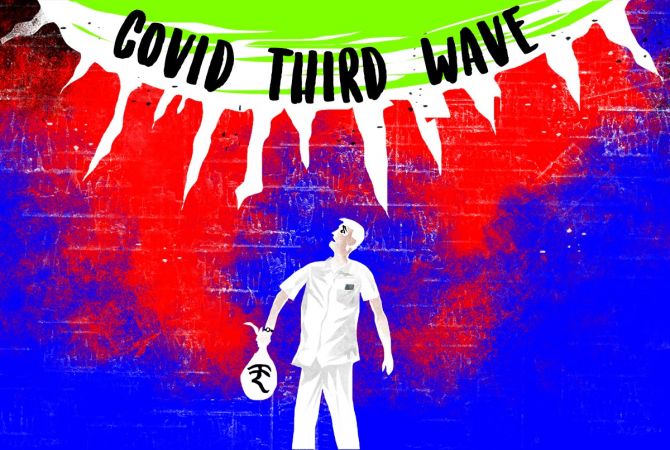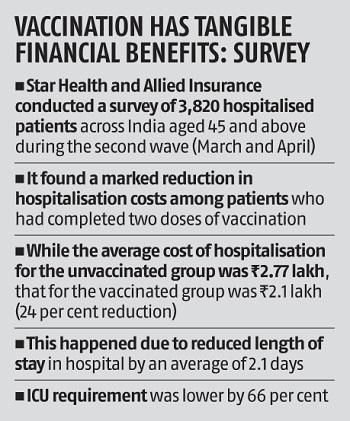Postpone the purchase of big-ticket consumer durable items, recreational spending on holidays and other such expenses unless your financial position is very secure, advises Sarbajeet K Sen.

World Health Organization Director General Tedros Adhanom Ghebreyesus says there are signals that the third wave of COVID-19 is in its early stages.
The Indian Medical Association has also warned that it was 'inevitable and imminent'.
The ferocity of the second wave and the damage it did to lives and finances is fresh in our minds.
While escaping the virus should be our top priority, we also need to prepare for the financial emergencies that can arise due to the third wave.
Maintain an emergency corpus
Have an emergency fund equal to at least 12 months of household expenses, including the equated monthly instalments (EMIs) you pay.
"Having an emergency fund can help a family sail through turbulent times, be it on account of job loss, or an extended period of hospitalisation, both of which would mean that your earnings stop," says Amol Joshi, founder, PlanRupee Investment Services.
Joshi suggested maintaining emergency funds in a joint account (anyone or survivor mode) so that the spouse can withdraw from it in an emergency.
Reallocate from equities to liquid instruments
If you have been investing in equity mutual funds, your portfolio would have done well over the past year.
Large, mid and small-cap funds (direct) have given returns of 51 per cent, 79.1 per cent and 111 per cent, respectively, over the past year.
It is likely that your asset allocation would have got tilted towards equities.
Book partial profits and park the proceeds in bank fixed deposits (FDs) or liquid funds.
These investments can be earmarked as emergency funds.
"Use bank FDs and liquid/overnight mutual funds to park money that may be required at short notice. Divide your liquid investments equally between these two instruments. Don't try to optimise your returns from liquid investments as liquidity always comes at a cost," says Arvind Rao, founder, Arvind Rao and Associates.
Both liquid and overnight funds (direct) have given returns of 3.1 per cent over the past year.
Rao suggests maintaining a balance of at least Rs 2 lakh in accounts that are digitally accessible.

Review your insurance needs
If you do not have health insurance, it is time you buy one. If you have only an employer-provided health cover, then you should buy a personal family floater health insurance to supplement it.
In case of job loss, the employer-provided health insurance won't be available.
If you have a family floater health insurance policy, then check the sum assured.
A cover of at least Rs 5 lakh per family member is a must. If it is less, consider increasing it.
You can also augment your cover by buying a super top-up policy.
Also, ensure that you have term cover equal to about 20 times your annual income (more if you have loans).
Renew your existing life and health policies on time.
Harshad Chetanwala, co-founder of MyWealthGrowth.com, says: "The cost of missing these renewals can be very high in these times."
Keep a tight rein on debt
The sum total of all your EMIs should ideally not exceed 40 per cent of your take-home salary.
In these difficult times, ensure that you do not add to your existing debt unless absolutely necessary.
The additional payouts could give you immense trouble in case of temporary loss of income.
"Do not add to your debt burden till the storm blows over," says Joshi.
Postpone the purchase of big-ticket consumer durable items, recreational spending on holidays, and other such expenses unless your financial position is very secure.
Joshi warns against incurring high-cost, unsecured loans, such as credit card debt and personal loans.
Feature Presentation: Aslam Hunani/Rediff.com












 © 2025
© 2025